What Does the Hospital Provide After Birth?
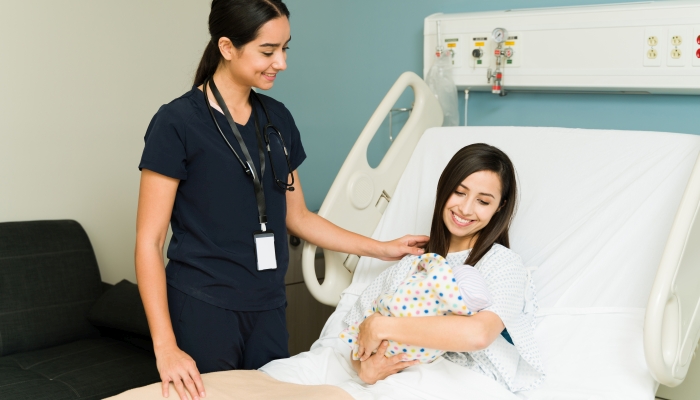
- Most hospitals will provide the same basic items for new moms to take home after giving birth.
- Hospitals will give out things like peri bottles, maternity pads, and comfort items for moms.
- The hospital will give out things like hats, blankets, diapers, and formula samples for the new baby.
- Hospitals often have samples they are able to give you when you leave.
I remember the days leading up to the birth of our first baby. We put a lot of thought into what we should pack in our hospital bag. We packed everything we could think of for a variety of scenarios.
As it turned out, we used almost none of it other than our own clothes. The hospital provided so many things.
Hospitals understand the significance of having a baby and how many things may be going through your mind. It’s not uncommon for the hospital to set you up for success before leaving the hospital.
Knowing what the hospital provides after birth will help you pack your hospital bag and avoid bringing along anything unnecessary.
Giving Birth at the Hospital
To make sense of what the hospital will provide, it’s helpful to know what to expect during your hospital stay. From when you arrive to when you leave, these are the different phases of your visit:
Triage and Intake
Maybe you’ve already spoken to your physician, or you’re still waiting for that call back from the office.
Either way, the first stop you’re going to make when you hit the hospital is going to be their intake or triage process. During this process, the nurse receiving you is going to make an assessment of where you are in the stages of labor.
The nurse will also likely gather any information they don’t already have. This could be information like who your doctor is and where you received your prenatal care. They will also get your vital signs, start basic monitoring of your baby, and possibly start an IV with IV fluids.
Labor and Delivery
If it looks like your baby is ready to make its appearance in the world, you go to the labor and delivery area. During this phase, you will be monitored through your labor, and your nurse will keep a close on you and your baby. How long you will be in labor depends on many things and is unique to you and your baby.
If you end up delivering vaginally, this is likely where you’re going to stay and have your baby. If a C-section is needed, you will be taken to the operating room. Whichever method of delivery, many important things will happen soon after birth.
During vaginal birth, tearing or the need for an episiotomy is unfortunately pretty common. Your risk is greater related to things like having a large baby, the need to use tools like forceps during delivery, or a long labor. Some small tears may heal on their own, but larger tears and episiotomies need to be stitched closed.
If you have a C-section, the physicians will need to spend some time after the delivery of the baby closing your uterus and abdomen. This will also give the nurse some extra time to watch you while still in the surgical area.
After the delivery of the baby comes the delivery of the placenta. The placenta makes important hormones and allows your baby to receive oxygen. The placenta also removes waste from your baby’s system.
Along with all the care being offered to you as the mother after birth, there are some important things happening with your baby. Your baby will be assessed by the medical staff to make sure there aren’t any urgent medical needs.
Breastfeeding and skin-to-skin contact many times soon become a priority. As sleepy as newborn babies are, they are often quite active in the first hour or so of life. This is the perfect time to try things like breastfeeding if you’re interested. Skin-to-skin contact is a wonderful way to bond with your baby, it comforts them and may help build a little confidence for new parents.
After Delivery
After the baby comes and you both are found to be well, you would likely move to the postpartum phase of your visit. For some hospitals, this is a separate clinical area, and for some you may stay in the same room.
Here you will likely spend the rest of your time in the hospital. You will begin to recover from labor. You will also be monitored by your postpartum nurse and medical providers.
The medical care during this time will be pretty low-key. You will have your vital signs measured and be checked for bleeding and any potential signs of infection. You will also be supported through managing your discomfort with pain medication.
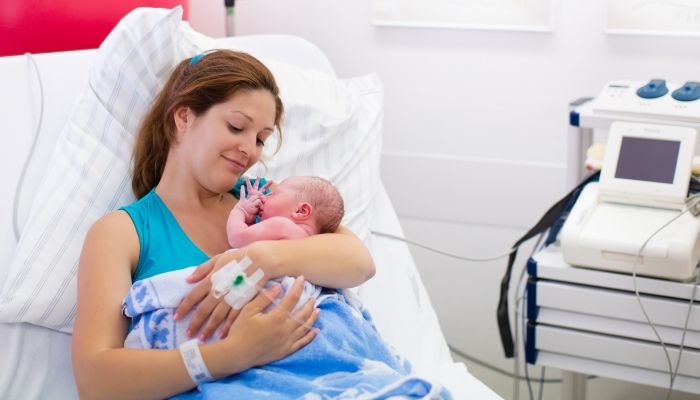
What Does the Hospital Provide for Moms After Birth?
Not every hospital is going to be the same. But for the most part, they will have some goodies for you. Don’t be shy—use what the hospital has to offer you. Some may be samples from the manufacturers. Other items are purchased by the hospital to support their patients.
These items can improve your comfort and support you in your recovery at the hospital and when you get back home. If it makes you feel any better, many items used in hospitals now are what we call single-patient use. Once something is given to you, or a package of something is opened they often can’t give it to another family.
Peri Bottle
This is a small bottle with a spout-like top to control the direction and stream of water. It is used to clean the vaginal area and perineum.
The peri bottle is especially useful for those women who may have torn during vaginal delivery or needed an episiotomy. The warm water helps clean and provides comfort during the healing process.
Maternity Sanitary Pads
There is going to be bleeding if you deliver vaginally or have a C-section. Bleeding can be heavy for the first couple of days with clots. You then might see light bleeding that can last up to about 6 weeks after delivery.
Maternity sanitary pads at the hospital are often large and can absorb a lot. These pads can be big, so you might feel like you’re wearing a diaper yourself. They do a good job though so take them if you get a chance.
Mesh Underwear
Mesh underwear isn’t going to win you any fashion contests. They’re big, stretchy, and from what I hear pretty comfortable. They will do a good job of holding the large maternity sanitary pads and can support comfort during the healing process.
Nipple Cream
If you end up breastfeeding, you may experience pain in your nipples. The first step might be to get in touch with a lactation consultant to make sure your technique is good. If your technique isn’t the problem, they might also be able to get you some samples of nipple cream for breastfeeding to help with the pain.
Donut Pillow
The miracle of birth has many women hurting below the waist for a bit. One great tool to get your hands on would be a donut pillow. A donut pillow will relieve pressure from your bottom when and can help to heal. If you were given one while at the hospital, chances are they can’t use it for another patient so take it home with you.
Witch Hazel Pads
Like the donut pillow, witch hazel pads can provide some comfort when at home. These pads are not packaged individually so if you open a pack, take it with you or it will end up in the trash.
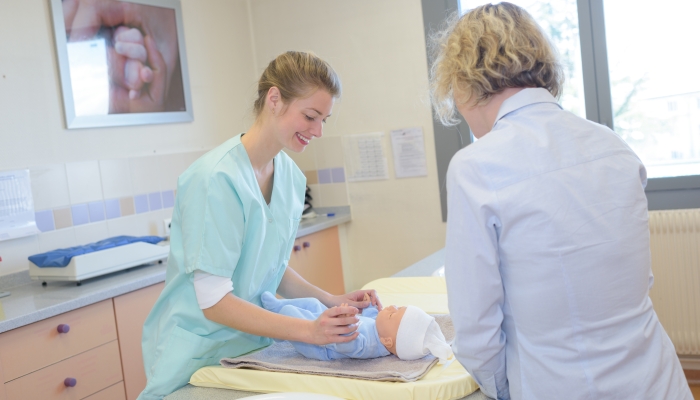
What Do They Provide for Newborns?
Of course, your newborn baby will come home from the hospital with their own set of supplies too. The hospital wants to make sure that new parents are stocked with everything they need to take care of and feed baby.
Make sure you stock up your diaper bag with these freebies from the hospital before heading home:
- Hats. What would a newborn’s stay at the hospital be without the ever-so-adorable hats they give out? These serve the important purpose of preventing your baby from losing body heat.
- Receiving blankets. These blankets are useful for swaddling and burping the baby. Hospitals will provide a couple during your hospital stay and often allow you to take some with you.
- Diapers and wipes. Newborn diapers and wipes are often provided for you in the hospital. If they allow you to take some home do it. Save your money for the larger ones because they’re not going to be in the tiny newborn diapers for long.
- Bulb syringe. Hospitals often keep a bulb suction or nasal aspirator on standby. If you can, grab it when you leave. They’re useful for clearing secretions from the baby’s nose and they can’t be given to another family once opened.
- Pacifiers. If you’re ok with using a pacifier, and they gave you some to use at the hospital take them with you.
- Formula. If the hospital was able to provide you with any formula samples, grab those also. Baby formula isn’t cheap and having a couple of options to try out isn’t a bad idea either.
Do All Hospitals Provide the Same Things?
Most hospitals will provide you with the same basic things. But when a hospital buys supplies, it’s sometimes a complicated process, so there may be some minor differences. The hospital may have contracts and vendor options in place. There is always the potential for some variation.
The variation is likely going to be in brand names. It can also be in what we call multiple-patient use versus single-patient use.
Many times it is more cost-effective for a hospital to supply single-patient-use items. This represents the advantage for you as the patient. If something is going to end up in the trash, they are more likely to let you take it home.
More Things That Hospitals May Provide After Birth
There are some extras I’ve seen given to people when they leave the hospital. They are a little less common but still useful.
Numbing perineal spray for sensitive healing parts is useful in supporting your comfort. They can be bought over the counter, but you may also be able to get your hands on some as you’re leaving the hospital.
Postpartum perineal ice packs are something many people appreciate during the healing process. They are often reusable for a single patient. If they offer some, take them up on it to make your transition back home a little more comfortable.
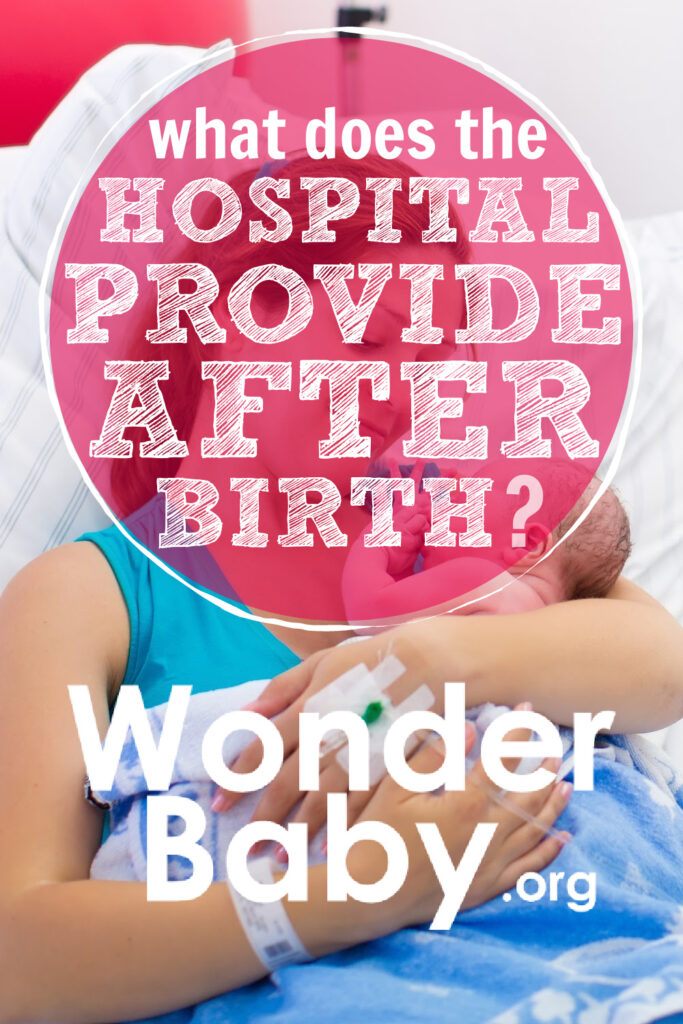
The information WonderBaby provides is not intended to be, and does not constitute, medical or other health advice or diagnosis and should not be used as such. Always consult with a qualified medical professional about your specific circumstances.
Related Posts
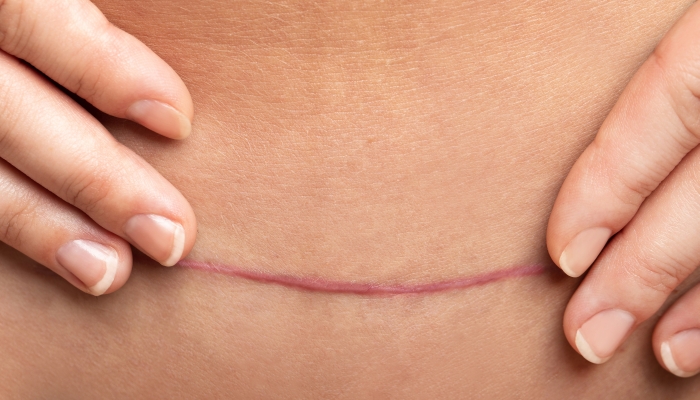
Pregnancy
How To Deal With an Ingrown Hair on a C-Section Scar
Ingrown hairs on a C-section scar can be treated using a warm compress or mild exfoliation. Infected ingrown hairs may require antibiotic treatment.
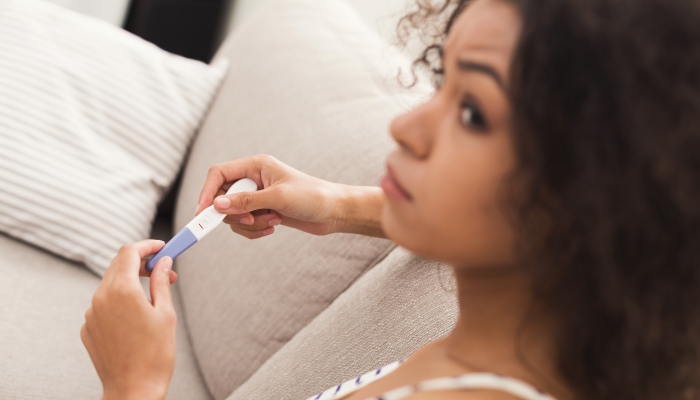
Pregnancy
What’s a Dye Stealer Pregnancy Test?
A dye stealer pregnancy test usually means that your hCG levels are very high, which is typically considered a good sign for pregnancy.

Pregnancy
Can Yelling Cause a Miscarriage?
Yelling alone can not cause a miscarriage. However, maternal stress can cause high blood pressure, preterm labor, and other health problems.